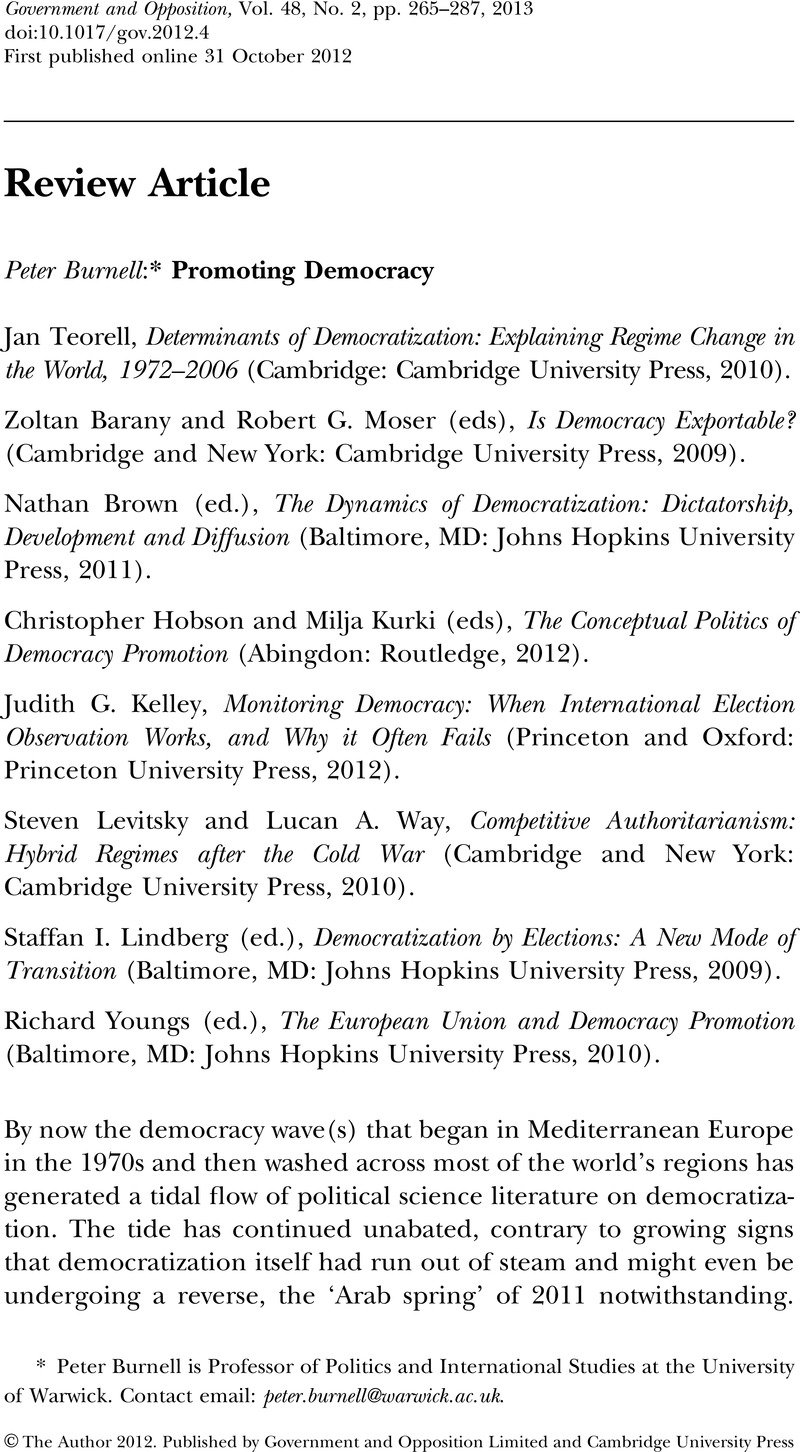Crossref Citations
This article has been cited by the following publications. This list is generated based on data provided by Crossref.
Doorenspleet, Renske
2015.
Where Are the People? A Call for People-Centred Concepts and Measurements of Democracy.
Government and Opposition,
Vol. 50,
Issue. 3,
p.
469.
Hartmann, Jürgen
2015.
Demokratie und Autokratie in der vergleichenden Demokratieforschung.
p.
177.
Risse, Thomas
and
Babayan, Nelli
2015.
Democracy promotion and the challenges of illiberal regional powers: introduction to the special issue.
Democratization,
Vol. 22,
Issue. 3,
p.
381.
Bogaards, Matthijs
and
Elischer, Sebastian
2016.
Democratization and Competitive Authoritarianism in Africa.
p.
5.
Bogaards, Matthijs
and
Elischer, Sebastian
2016.
Competitive authoritarianism in Africa revisited.
Zeitschrift für Vergleichende Politikwissenschaft,
Vol. 10,
Issue. S1,
p.
5.
Kaltwasser, Cristóbal Rovira
and
Taggart, Paul
2016.
Dealing with populists in government: a framework for analysis.
Democratization,
Vol. 23,
Issue. 2,
p.
201.
Doorenspleet, Renske
2019.
Rethinking the Value of Democracy.
p.
29.
Dembinski, Matthias
2019.
Europäische Friedensordnungen und Sicherheitsarchitekturen.
p.
69.
Refle, Jan-Erik
2022.
Measuring democracy among ordinary citizens—Challenges to studying democratic ideals.
Frontiers in Political Science,
Vol. 4,
Issue. ,



